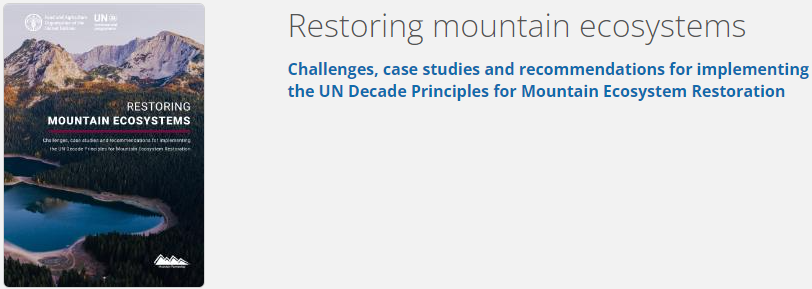Discover the pivotal insights unveiled in this collaborative publication by the Mountain Partnership Secretariat at the Food and Agriculture Organization of the United Nations and the United Nations Environment Programme. This comprehensive analysis delves into various mountain ecosystem restoration projects, shedding light on the application of the UN Decade’s Ten Principles for Ecosystem Restoration to safeguard these critical environments.
As we recently concluded the International Mountain Day 2023 under the theme “Restoring Mountain Ecosystems,” this publication emerges as a crucial resource. It not only explores success stories from mountain restoration initiatives but also aligns with the broader Five Years of Action for the Development of Mountain Regions 2023–2027.
Mountains play a vital role in supporting diverse ecosystems that directly impact 1.1 billion people and countless others in adjacent lowland areas. With half of humanity relying on mountains for freshwater resources, these ecosystems offer essential services like temperature regulation, water retention, carbon storage, and erosion prevention. Moreover, mountain forests, wetlands, and grasslands host half of the world’s biodiversity hotspots.
Despite their significance, mountain ecosystems face unprecedented threats from global crises such as climate change, biodiversity loss, food insecurity, and pollution. Compounding this, evidence suggests that mountain ecosystems are experiencing adverse effects at an alarming rate compared to other terrestrial habitats.
In navigating the complex challenges that mountain ecosystems confront, this publication serves as a great resource. By analyzing restoration projects and showcasing success stories, it provides practical recommendations on applying the UN Decade’s Ten Principles for Ecosystem Restoration to mountain environments.

